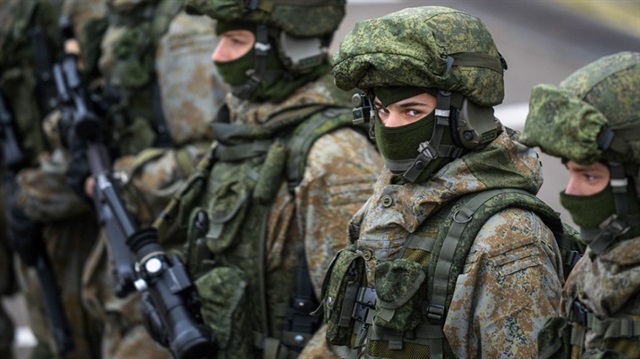
War in Syria has cost Russia $4 billion, 112 casualties
Figures show that Russian forces have tested several new weapon systems in Syria -- in the first direct clashes outside its borders in seven years.
Russia intervened in the conflict in September 2015, backing the Bashar al-Assad regime on the pretext of fighting Daesh.
The regime and its allies now control more than half of the country -- 109,136 square kilometers (42,137 square miles) of the 185,180 square kilometers (71,498 square miles) -- with two Russian military bases at the port city of Tartus and the northeastern city of Hmeimim.
According to the Russian Ministry of Defense, a total of 34 warplanes and 16 helicopters at Hmeimim airbase actively took part in military operations across Syria under the service of 63,012 military personnel, of which 25,738 are officers and 434 generals.
Russian jets carried out more than 39,000 airstrikes to support the regime and allies. Its warships were deployed 189 times.
Russian S-300 and S-400 missile defense systems were also stationed across Syria, particularly in the vicinity of Russian bases.
According to Kremlin figures, the war in Syria has cost more than $4 billion and resulted in 112 Russian casualties. Thirty-nine servicemen were killed when the An-26 transport aircraft crashed and 15 when the Il-20 warplane was downed.
Russia also lost eight planes, seven helicopters and several armored vehicles.
Russia tested 231 different newly-developed or modern arms systems, including the Tu-160 strategic bomber plane, the X-101 air-to-surface cruise missile, the modernized T-90 tank, the Su-57 and Su-35 fighter planes, Mi-28H helicopter, various short and intermediate range surface-to-air missiles and the Pantsir-S anti-aircraft artillery system.
The Syrian war also saw the first-ever use of Russian long range naval cruise missiles, fired from warships in the Caspian Sea to targets within Syria.
Russian President Vladimir Putin illustrated this point during a televised question and answer session on June 8, 2018.
“The use of our armed forces in the battlefield is a unique experience, a unique tool by which to improve our armed forces. No amount of military exercises could compare with the use of force in combat conditions.”












